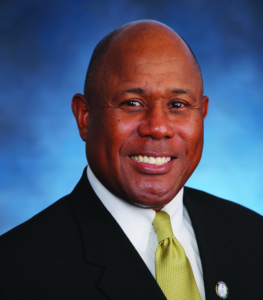Writer: Max Crampton-Thomas
 2 min read April 2021 — Community colleges have historically acted as economic engines to assist people recovering from downturns, regardless of the root cause. In an interview with Invest:, Dr. Ken Atwater, president of Hillsborough Community College, discusses the importance of hybrid learning environments to continue to fulfill that role successfully going forward.
2 min read April 2021 — Community colleges have historically acted as economic engines to assist people recovering from downturns, regardless of the root cause. In an interview with Invest:, Dr. Ken Atwater, president of Hillsborough Community College, discusses the importance of hybrid learning environments to continue to fulfill that role successfully going forward.
How did the 2020 fall semester transpire at Hillsborough Community College?
The college made a huge transition. Prior to the pandemic, remote learning was not the primary delivery of instruction for us at the college. We offered approximately 20% of our instruction through our online learning environment prior to COVID-19. After the pandemic in the fall, that number was at 70%. During that transition, especially as quickly as we had to do it, our priority was to maintain a high-quality learning environment and provide high-quality instruction. We were able to do so while maintaining the safety of our facilities for both students and staff. We are so proud of our faculty and staff who did this Herculean task and didn’t miss a beat. We were even able to hold a virtual commencement ceremony.
Where do you see online learning moving from this point?
You would be surprised at the number of people who were skeptical about taking online learning classes prior to the pandemic. We’ve learned what we need to do to make those classes more interactive and engaging in order to provide a greater chance for people to be successful. We’ve also learned that interaction, whether virtually or in-person, makes all the difference. All of our classes have to be engaging, and we’ve learned how to do that in our online environment. We are retrofitting over 200 classrooms at the college for hybrid, synchronous, in-person and online classes. It has required a major upgrade in our technological footprint.
What major curricular updates has the college rolled out?
Working with local business and industry, we continuously change and upgrade our programs. We do it based on our region’s economic needs. We are heavily involved in the healthcare arena and have grown from 16 health programs to 23, including new additions such as surgical technician, cardiovascular technician and medical laboratory technician programs. All of these are based on community needs. One of the most exciting trends we are undertaking in the healthcare arena is our strategic objective of offering a bachelor of science in nursing in addition to our associate in nursing degree. We are looking at 35,000 to 40,000 jobs over the next 10 years created by that industry alone. HCC is stepping up to the plate with this, the first bachelor’s degree that we will be offering at the institution.
We are also moving heavily toward IT, especially on the cybersecurity front, in addition to additional offerings within the transportation sector, including heavy-equipment, diesel technician and electric car technician programs, to name a few.
How has the pandemic translated into a push toward talent upskill, reskill and career change?
Anytime you look back after a recession or a downturn, the country’s community colleges, who already play an essential role in sustaining the community’s economic engine, are critical in helping people recover from these difficult times and in this case, the pandemic. We see ourselves playing a leadership role in this recovery as well. In the Tampa Bay area, for example, if you look across all segments of the transportation sector, there are about 15,000 jobs that perform an important role within its supply chain. If you look at what is necessary to fill those jobs, such as diesel and automotive technicians and welders, all require advanced skills from programs that we offer. We graduate over 220 technicians every year, with an average salary of $40,000 per year, and their economic impact is valued at over $600 million on an annual basis.
What are your top near-term priorities?
The pandemic has highlighted some of the discrepancies among our students, especially those who are low income. It has made it obvious that you cannot learn in a remote learning environment unless you have access to the tools to do so. There are so many families who lack reliable internet access, functional computers or a tablet, and learning off your cellphone is not viable. That is the situation for a lot of our students, especially people of color. It has also become very evident that even though we provide a quality environment conducive to learning remotely, we have to maintain an equally strong in-person environment as some of our students have real challenges with remote learning. Our priority going forward is to establish an even stronger hybrid learning environment coming out of the pandemic that brings together the best of in-person and remote learning. That modality was only available to about 8% of our classes prior to the COVID-19 outbreak, and our plan is to ensure its continued growth.
For more information, visit:
